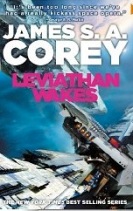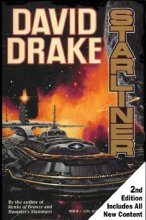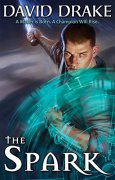 Who do you listen to when you write?
Who do you listen to when you write?
Dean Wesley Smith has written more than a hundred books over many years along with his wife Kristine Kathryn Rusch who has written equally as much. Both are Oregon Coast writers who know what they are talking about when it comes to writing and publishing. So it was interesting to read a blog where Dean advocated not having Beta readers or even writing groups. https://www.deanwesleysmith.com/killing-the-sacred-cows-of-publishing-beta-readers-help-you/ His point was that in the cacophony of advice, the author ‘s voice may be lost among the mumble of suggestions, and the story damaged or diluted.
I work with both a writers’ group and Beta readers because I find their input helpful in making my story stronger.
But he has a point. A very good point.
Some writers want to polish each word to a literary high gloss, while others encourage a stampede of action and excitement to keep their readers turning the pages. Others drench their characters with emotion much like a teenager in the throes of first love. And you, as the writer, may be pushed and pulled by their suggestions.
In The Yiddish Policeman’s Union by Michael Chabon (mentioned in my last blog) I delighted in brilliant metaphors and similes until it became too much and felt like every third sentence was a finely crafted metaphor to show off how clever the writing was.
I love Anne Bishop’s Black Jewels Series, but the strong emotions of the characters take center stage, leaving descriptions and action to tag along.
And anyone reading space opera science fiction or a series like The Expanse knows that action is paramount. Authors are told to have the first chapter start bang with strong action that hooks the reader and fill out the characters and setting later.
So a writers should decide what his or her voice is, or it could become a hodgepodge of other people’s suggestions.
Make no mistake, suggestions are helpful and often make for a stronger work, but only after asking the question : Do I know what my voice is and is this suggestion consistent with my voice and how I want my story written?
In my last blog, I mentioned the international aspect of blogs. Writers are blogging with other writers from all over the globe. It’s quite international. But now we have come to a whole new level when Google translate can instantly translate a blog into many different languages. My friend Diana Peach wrote a guest blog today for Christopher Graham. (copy/paste)
The blog was excellent, but what attracted my attention was the ability to tap the drop down in the upper right hand corner and immediately have Google translate the blog into a bewildering number of languages. Take your pick.
Think about that one.
 I return to space opera this week for my science fiction suggestion. David Drake is a prolific writer of science fiction with several series, and I have been meaning to read him for some time now. Written in 1992, Starliner came out in trade paperback this past June with additional content.
I return to space opera this week for my science fiction suggestion. David Drake is a prolific writer of science fiction with several series, and I have been meaning to read him for some time now. Written in 1992, Starliner came out in trade paperback this past June with additional content.
Third officer, Lieutenant Ran Colville, receives his staff side position of making sure all goes smoothly on board the newest and largest starship, the Empress of Earth. Even with the efficient help of the attractive lieutenant Wanda Holly, politics, greed, young love and war threaten to disrupt the orderly passage of the luxury ship with its high class passengers. And Ran’s job is to see they are happy and safe. Different chapters describe various landings on interesting worlds, each one presenting a challenge to the ship. All through the story is the threat of pirates or a military fleet from a warring planet that would love to add this majestic ship to its fleet. Jumping through wormhole, exploring exotic world, dealing with dark politics, and fending off panting women all keep Ran hopping.
Drake writes a fast-paced story but keeps in mind his characters and their various emotions that drive their actions. This book is a stand alone, but I’m certain to try out other of David Drakes stories having read this one. Maybe this latest one.














Thanks so much for the mention, Sheron. 😀
The author’s voice is really important. Our style, pacing, word choices, language, focus are all individual and translate across books. I agree that it can be diluted by a plethora of opinions, often ones that are at odds. But… Smith, with hundreds of books to his name, probably doesn’t need much stylistic feedback anymore. Writers early in their careers, I believe, need as much knowledgeable feedback as they can get. I know I did. You know I did (ha ha), and it was vital to growing as an author. The need for that feedback wanes with time, but I think we will always have blind spots. I’ll betcha that Smith has people/wife/editor(s) who read his books before they’re published. 😀
LikeLike
Excellent comment. At this point in his writing, Dean probably doesn’t need a lot feedback, especially with his wife so active in the business. Again, my writers group has been invaluable in pointing out certain “blind spots” of mine. (And I have many) which has helped my writing, but I still feel writers need to consider their voice when listening to writing suggestions by others.
Another good point you make is the experience or proficiency of the person giving the critique against the quality of the writer receiving the advice. A new writer should listen more closely to a successful and experienced author as opposed to someone just handing out opinions.
LikeLiked by 1 person
We’re totally on the same page, Sheron. The more I learn about writing, the more I realize how many elements require a balancing act. Add them all together and this vocation becomes worthy of the big top!
LikeLiked by 1 person
Thanks for this blog entry! It’s possible that an author’s work could get muddled if they don’t know what they are doing, and their beta readers or groups don’t know what they are doing, but if you are writing hopefully you know enough to differentiate style from structure and recognize what preferences are no better and what preferences save you from bad writing.
With the caveat that I’m not a writer ;), I can see in a number of authors’ work that it’s much better when it’s been heavily read and some knowledgable people have made suggestions. Often an author’s first book is really good because they’ve spent years revising it and having friends and writing groups read and give suggestions, and subsequent novels aren’t nearly as good. Brandon Sanderson’s The Rithmatist was noticeably better than his usual novels, and when I read in his acknowledgements it had been heavily worked and reworked I was not surprised.
In the end, the risk of your voice getting washed out or the story suffering a bit is probably worth getting reviews and feedback from beta readers and a writing group in order to avoid the “George Lucas effect”, where you get to make your work exactly the way you want it, but it would have been much better in terms of objective quality if someone else who knew what they were doing had given you feedback first.
LikeLike
Great comments, Jake. I see I need to read the Rithmatist since I like Sanderson’s other works so well.
I thought Dean’s comments worth a mention but I owe a lot to my Beta readers and writing group for their insights and catches. (Especially those blamed commas)
LikeLike
I fixed the link problem. They should work better. What a hassle, but the blogs are worth the time and trouble getting them to work. A bit of cockpit trouble,I’ll have to admit.
LikeLike
Great post! Dean & Katheryn are awesome!
LikeLike
I admire both and read Katherine’s blog all the time.
LikeLiked by 1 person
Kathryn…my computer likes to respell words behind my back
LikeLike
Yes, I do as well. 😀
LikeLike
My current dilemma is that two beta readers say they LOVE the first few chapters for all kinds of reasons and two say those chapters should be dropped completely and others have no specific comments about them… Drowning in opinions. But the potential readership’s group opinion is crucial to a novel’s success. So you go back to the others and ask specifics about the opening. And keep your fingers crossed they all agree one way or the other. 😉
LikeLike
Take an objective look at the comments. Is there a valid point or just a reader’s spontaneous opinion? Then follow your instincts. After all, it’s your book in the end and no two readers see the story the same way. Trust me on that one. Everyone brings a their own life experiences to the story and no two are the same.
LikeLike
I loved David Drake’s Northworld. Incorporating plots from Scandinavian mythology gave this complex science fiction novel unique emotional deprh.
LikeLike